- Home
- Tanya Huff
An Ancient Peace Page 5
An Ancient Peace Read online
Page 5
“. . . as well as the reports filed with and by the Justice Department concerning your previous missions, we’ll forgo further introductions and proceed directly to the reason you were called in. Colonel.”
Colonel Hurrs tapped a file from the table up onto the big screen. “This is a H’san grave good from the Bertan’sh dynasty—some two hundred and ten years postConfederation. It was purchased in a market on Abalae and sold to a wealthy Human collector. This collector is known to one of our retired specialists who brought it to the major’s attention. Major Alie brought it to me.”
If her team had been in contact with H’san grave goods over the last year, this was the first Torin had heard of it. Alamber, the best bet for having been running an illicit antiquities business on the side, had his head slightly cocked to the right, a clear tell that he was processing new information. From the collection of ticks and tells around the table—and Craig’s overtly irritated confusion—the image was new to everyone.
“Excuse me, sir, but what is it?” It looked a little like a hollow, ceramic fish with a metal interior—if fish were pale pink, slightly squashed half circles with blue spines and, for all Torin knew, some were.
“As near as we can determine without consulting the H’san, it’s a biscuit warmer.”
Alamber opened his mouth, then gasped and closed it. Given the minimal shifting above the table, Torin assumed Ressk had squeezed Alamber’s leg with a foot.
Binti leaned closer to Torin. “Why would a H’san be buried with a biscuit warmer?” she asked quietly.
“The H’san prefer warm biscuits in the afterlife.” Gunnery sergeants always knew. It was part of the job description.
“Bullshit,” Binti muttered.
The last year as an ex-gunnery sergeant had worn a bit of shine off the brass.
“And this . . .” The colonel touched the table again, and the image changed. “ . . . is a H’san grave good from the early Bertan’sh dynasty, roughly one hundred and fifty years postConfederation, purchased on 3Bortan.” And again. “As is this, but purchased on Darquen Bi.”
As she hadn’t heard of either planet, Torin assumed neither had been attacked by the Primacy. Her best shot at identifying the first artifact was that it was a coil of irrigation tubing. The second might have been a shoe. It might have been another biscuit warmer.
“And this, purchased on Sarvai or Minout or whatever they’re calling it now.” He squinted at the piece of flattened metal, covered in strapping. “Although our expert suggests this is closer to one hundred years postConfederation.”
Definitely not a biscuit warmer. Possibly, given what looked like hinges, it was the door off a small cupboard. Or the H’san version of a baby carrier. Or a cheese tray. Who knew with the H’san?
“I’m sure that’s made a few archaeologists shit happy bricks, Colonel.” Craig laid both hands flat on the table. “But what do photos of ancient naff have to do with us?”
Colonel Hurrs glanced at Torin, who looked politely attentive. When it became obvious that was all she was going to do, he frowned, shifted his attention to Craig, and answered the question. “The H’san do not sell their grave goods. These items were looted from H’san graves and sold. We’re not certain how many items these grave robbers have taken, but that’s of less interest to us than the era they were taken from. The H’san are a very old race. The Eldest of the Elder Races.” A faded photo of a shattered building surrounded by bodies and body parts appeared on the screen. “And a very long time ago, they were a very violent race. After a war that went on for centuries, killing billions of their people and reducing a colony planet to a smoking ruin, they achieved enlightenment, pledged themselves to peace, founded the Confederation, and turned the planet they’d recently destroyed into a memorial slash cemetery. For more than a millennia they fetishized their dead and . . .”
Grave goods. Torin’s hands curled into fists. “And having given up war, they buried their weapons. These grave robbers are looking for H’san weapons and they’re only a hundred years away from finding them.”
“That’s the conclusion we have also arrived at, Gunnery Sergeant.” Colonel Hurrs drummed the toes of his right foot against the edge of the table. Torin doubted he knew he was doing it. “While the H’san themselves might, and I stress ‘might,’ forgive the desecration, others will not. The discovery that members of the Younger Races are grave robbing for ancient weapons is the kind of information that could be used to convince Parliament the Younger Races are not ready for civilized society. Now that you’ve ended the war, there’s a certain powerful faction in Parliament who believe that as soon as the fighting actually stops, we will no longer be needed. That the Younger Races’ capacity—some say, affinity—for violence means we should be restricted to our own sections of space, locked in until we become better socialized. They’re looking for an excuse, and this could give it to them.”
Restrictions would label the Younger Races as lesser. Maybe the Elder Races had the technology to enforce it—they hadn’t shared all they knew, that was a given—maybe they didn’t, but in the end it would mean civil war. Torin only barely managed to stop herself from touching the bulge of cylinders, of dead Marines, she wasn’t actually wearing—a tell she had no intention of gifting to Colonel Hurrs. Dr. Ito thought it was time she put down her dead. And he wondered why she missed appointments.
“Should the weapons be found, and they’re clearly heading for the correct era . . .” The colonel’s bristles made a soft shoosh as he rubbed his head. “. . . we will lose any hope of keeping this quiet. We have to shut them down quickly and quietly.”
Craig leaned forward, leg pressed against hers under the table. “When you say we, who exactly are you referring to?”
“This problem cannot have a military solution.” Colonel Hurrs sounded calm enough, but his nose ridges kept opening and closing slightly, the movement not entirely under his conscious control. “The laws of full disclosure,” he continued, “would require the military—Corps or Navy—to file a battle plan with Parliament and make all files available to the press. Involve the military, and we might as well hand that faction . . .”
Torin appreciated the way he made faction sound like profanity.
“. . . an annotated report. This problem must be solved with no official military involvement.”
“Nothing official, right.” Craig maintained the pressure against her leg, and Torin remained silent. “To be clear, these galahs have to be stopped before they reach a buried cache of H’san weapons and announce their find by blowing shit up. Ignoring, for the moment, the effect on the shit—where shit generally means persons and property—this’ll open the door on what the bastards have been up to and give certain politicians exactly what they need to convince Parliament that the Younger Races should be restricted. You can’t do anything about it because you’ve got eyes on you twenty-seven/ten, so you need a team you can send in on the down low.”
Major Alie opened her mouth, but Werst cut her off. “A team you can count on to keep their mouths shut.”
“A team,” Binti said thoughtfully, “that does the impossible every morning before breakfast.”
“A team with a clear and distinct disconnect from the military so you can maintain plausible deniability if it goes revenk. We have two civilians and, thanks to Gunny’s very visible trial after the incident on Vrijheid Station, everyone knows we work for the Justice Department.” Ressk’s nostril ridges very slowly closed. “Except we won’t be working for the Justice Department . . .”
“Because Justice is stuffed with the Elder Races,” Werst interjected.
“. . . and if this goes revenk, we’re fukked.”
“If this goes revenk,” Colonel Hurrs repeated, “we’re all fukked.”
The colonel hadn’t observed these Parliamentarians from afar, Torin realized; he’d gotten up close and personal and they scared t
he shit out of him. And he was allowing her to see they’d scared the shit out of him. She moistened a mouth gone suddenly dry, and asked, “What reason did you give Justice when you requested they call us in?”
“They were informed we needed to go over your recent successes in detail, in the hope of identifying certain asocial factors and preventing further violence before it can occur.”
Werst snorted. “Oh, they must’ve loved the idea of stopping the bad guys with flow charts.”
“They did,” Major Alie agreed. “As a result, you’ve been loaned to us for as long as we need you. If you accept the mission, we’ll provide the Promise with new codes and keep the old codes registered here.”
“So if Justice checks?” Craig prodded.
“If Justice checks, you’re still at Ventris.”
Ressk answered Torin’s silent question with a bored eye roll. Not only doable then, but simple.
“How much backup can we count on, sir?”
“From the military? None. We’ll provide you with all the intelligence we have, but that’s all we can risk. If even the smallest hint of this reaches the press, it’ll be enough to open an official investigation.”
“Of the grave robberies or of the Intelligence Service hiding the grave robberies?”
“I can’t see how it would matter,” the colonel snorted. “Other than on a personal level, the results would be the same.”
Torin met his gaze for a long moment, then she showed teeth. Humans were nearly unique among mammalian species in considering bared teeth an expression of joy. The colonel was Krai, the major di’Taykan; they understand what she meant. “If something does go wrong, wrong enough to be noticed, with us involved you might be able to spin it away from the Younger Races. The recordings from the prison planet still get shown.” She leaned back in the chair and spread her hands. “I’ve been under mandatory psychiatric observation. All six of us could be used as a textbook example of survivor guilt. Two of us had those aliens in our head.”
Colonel Hurrs mirrored her expression. “I’d forgotten you played host to the aliens. If we have to remind the press of that, we win the blame game.”
“You’re welcome.” She closed her teeth on the sir. He’d clearly considered the first two points. “Consider it a freebie.”
“Speaking of freebies.” Alamber leaned in, both hands flat on the table. “Who’s paying us?”
Major Alie’s hair lifted, not so much surprised by Alamber’s question, Torin suspected, as by him speaking at all. If the major had given it a moment’s thought, she’d have realized only Alamber or Craig could’ve been put in charge of the team’s finances. The rest of them had only ever been paid by the Corps. “Paying you?”
“Paying us.” His hair fanned out in a pale blue corona. “We’re not working for Justice, we’re not working for the military—so who’s paying us? Saving the future is all well and good, but air isn’t free, the ship needs fuel, and I refuse to wear this outfit more than once.”
“Once is enough,” Werst growled.
“Take it off me if you . . .”
Torin rapped the edge of the table. Both Alamber and Werst fell silent.
After a moment of increasingly uncomfortable quiet, the major realized Torin expected her to answer the question. “The Intelligence Service has certain discretionary funds we’ll shift into your ship’s account.”
Discretionary? It sounded as though Intell hid operating funds from the Parliamentary budget committees. Fully aware that at least three members of the team had filed the information away for later use, Torin let it go. “To be clear . . .” she deliberately echoed Craig’s words. “. . . the mission, should we accept it, involves us taking out an unknown number of grave robbers who may or may not be ex-military on a H’san cemetery planet before they can use the weapons they’re searching for, while maintaining an information blackout on both the problem and the solution. If we get into trouble we can’t handle, we’re on our own.”
“Is there trouble you can’t handle?” Major Alie asked, hair out.
“No, sir. Not so far.” Torin refused to be baited. “But so far, we’ve been asked to bring certain persons to justice, not to dispense it.”
“We haven’t been judge, jury, and executioner,” Craig pointed out.
“You’re setting a dangerous precedent,” Torin added flatly.
“We’re aware of that.” The colonel shifted and his nostril ridges slowly flared open. Trust me, the vulnerable position declared, because I trust you. Considering the information he’d already shared, there was a chance he did. “That precedent is why we want you. As the major said at the top of this meeting, we’ve seen the reports filed with and by the Wardens concerning your previous missions. We saw the recordings made when you apprehended the furrier.”
Katrien in cages, chemically silenced, watching friends and family secured to a metal lattice . . .
Torin jerked out of memory as the table in front of Werst cracked. The two of them had gone alone into that final room. They had the most experience with the worst people were capable of and, at that point, they’d had a pretty good idea of what they’d find.
“If those . . . people made it to trial,” Colonel Hurrs continued, his voice so neutral Torin knew the Chief of Staff had seen a battlefield or two in his day, “then I, personally, have no fear you—any of you—can be driven to take advantage of this dangerous precedent we are, indeed, setting. If those weapons are found and used, there is a very good chance they could be the first shots in a civil war. Do what you must to stop the grave robbers. To stop a war. We’ve all seen too much war. That, Gunnery Sergeant Kerr, is the mission should you choose to accept it.”
Torin considered asking what would happen if they didn’t accept, but everyone from Colonel Hurrs to Alamber knew they wouldn’t be sitting here if there’d been a H’san’s chance in hell of them turning it down. She swept a glance around her people, holding each gaze for a moment. Alamber was the last to agree, his nod weighted with disinterest Torin knew was mostly for show. “We’re in.”
Colonel Hurrs nodded, nostril ridges half closing.
Major Alie looked as though she’d only barely stopped herself from saying, of course you’re in, stop wasting my time. “Keep a low profile on the way back to your ship. We’ll clear as much of the docking arm as we can without rousing suspicions, but try not to be seen. You’ll carry the information out of here locked down on your slates. It won’t release until you’re in Susumi and it can’t be tapped.”
“We’ll need a destination in order to create the Susumi equations,” Craig pointed out. He’d shifted closer at the mention of the furrier, his shoulder a warm point of support against Torin’s.
“We’ll give you . . .”
“Yeah, well, not to be all big note about it, but there’s not a chance I’ll use an equation I don’t work out myself.”
The colonel raised a hand, cutting off the major’s reply. “Start at one of the planets where the grave goods were bought. Backtrack the seller.”
“Backtrack the seller?” Craig repeated. “Are you shitting me?”
“You don’t know where the H’san cemetery planet is,” Torin said before either officer could answer. “You have stories and a few old photographs, but no actual coordinates.”
Werst’s snort managed to express both disbelief and derision.
“The story of how the H’san emerged from war into peace is one of the founding narratives of the Confederation.” Major Alie leaned forward, fingers laced so tightly together Torin could see the strain even from the other end of the table. “We know the cemetery planet is in the H’san’s system of origin, we know that system was abandoned just prior to their sun becoming a red giant, but the H’san have buried the coordinates of the system. Our search for it set off flares and we started attracting some of the wrong kind of attention. We barel
y managed to cover our tracks.”
“So . . .” Craig began to draw the vowel out. Torin’s elbow cut it short. “. . . in order to stop this potential war of yours, we don’t only have to stop people from robbing H’san graves, but we have to find the graves first.”
“Yes.”
“You’d better be freeing up a boatload of discretionary funding, Major.” Craig slouched back in the chair. “Just one more thing: the H’san have been peaceful for millennia.”
Major Alie speared him with a glance. “Your point?”
“I’ve pulled weapons out of significantly more recent battlefields and there’s sweet fuk all that still fires.”
The major’s hair twitched. “We know the weapons weren’t destroyed before they were buried, but we can’t exactly ask the H’san for information about their condition.” She touched the table and the first image, the might-be-a-ceramic-fish reappeared on the screen. “We do know they’ve never heard of built-in obsolescence. This still heats biscuits.”
“And we head out to save the day with a picture of a biscuit warmer and the unsupported assumption we’re stopping a potential warlord and not a rogue archaeologist.” Craig leaned back in the pilot’s chair and scowled out the front port as the last three berths on delta arm passed by. He hated giving over control of his ship to the Docking Master, but he had no choice within the Ventris perimeter. Although, this time, he supposed he’d given control to the Intelligence Service. Because that made it so much better.
“There’s also the irrigation tubing and the cheese tray,” Torin pointed out.
“I can see why they called us in.”
“Rogue archeologists?”
“Mad scientist subset.”
“I see.” She turned the copilot’s chair until she could rest her bare feet on his leg.
“Private vessel Commitment, this is Ventris perimeter. Control will be returned to your board in fifteen seconds.”
Dumbass name for a ship, but no one had asked him. He faced the board, hands above the screens, Torin’s feet still on his lap. “Once I’ve got the course to the traffic buoy locked in, we could . . .”

 Child of the Grove
Child of the Grove Blood Lines
Blood Lines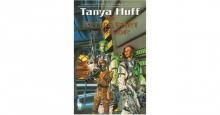 What Manner of Man
What Manner of Man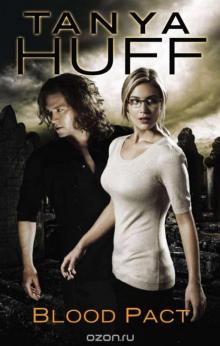 Blood Pact
Blood Pact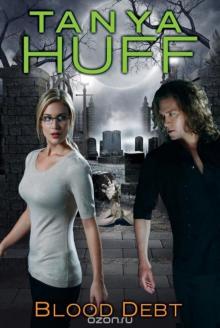 Blood Debt
Blood Debt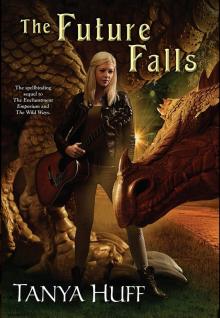 The Wild Ways
The Wild Ways Blood Trail
Blood Trail Blood Shot
Blood Shot Wizard of the Grove
Wizard of the Grove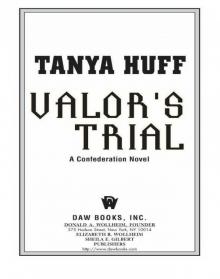 Valor's Trial
Valor's Trial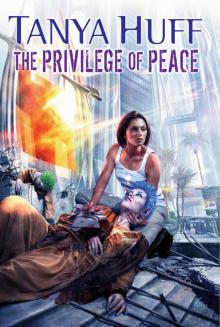 The Privilege of Peace
The Privilege of Peace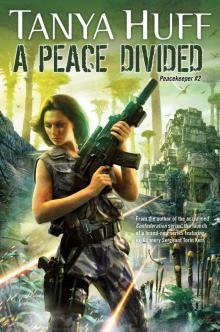 A Peace Divided
A Peace Divided Three Quarters
Three Quarters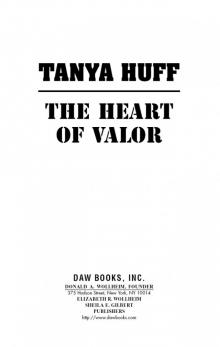 The Heart of Valor
The Heart of Valor No Quarter
No Quarter The Demon's Den and Other Tales of Valdemar
The Demon's Den and Other Tales of Valdemar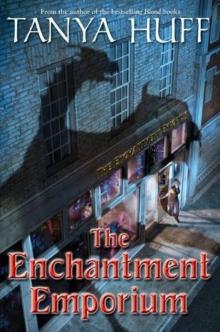 Enchantment Emporium
Enchantment Emporium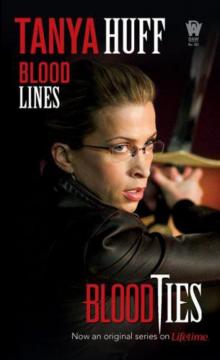 3 Blood Lines
3 Blood Lines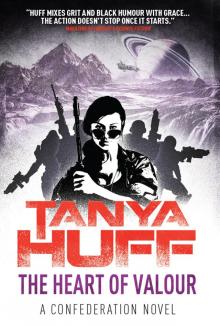 The Heart of Valour
The Heart of Valour Smoke and Ashes
Smoke and Ashes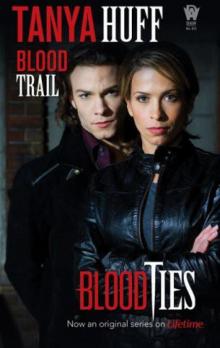 2 Blood Trail
2 Blood Trail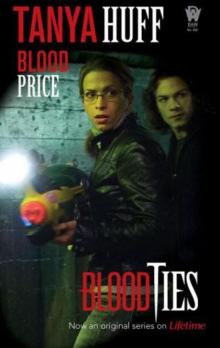 1 Blood Price
1 Blood Price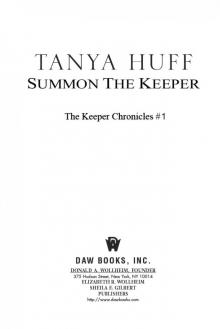 Summon the Keeper
Summon the Keeper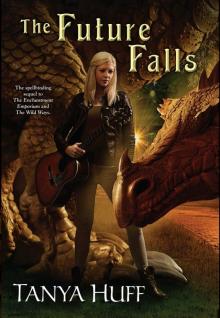 The Future Falls
The Future Falls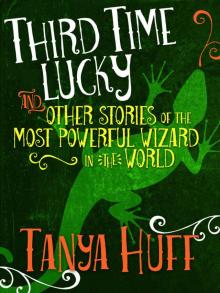 Third Time Lucky: And Other Stories of the Most Powerful Wizard in the World
Third Time Lucky: And Other Stories of the Most Powerful Wizard in the World The Second Summoning
The Second Summoning Fifth Quarter
Fifth Quarter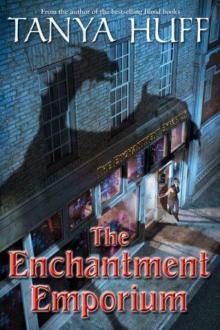 The Enchantment Emporium
The Enchantment Emporium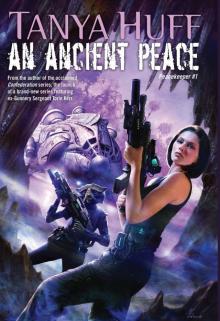 An Ancient Peace
An Ancient Peace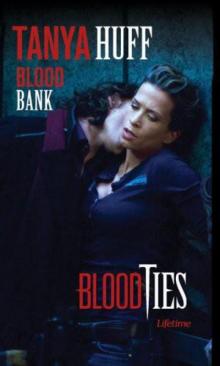 Blood Bank
Blood Bank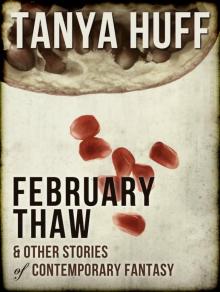 February Thaw
February Thaw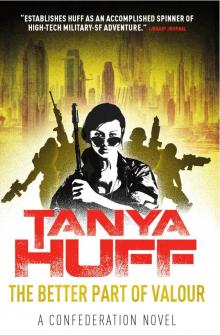 The Better Part of Valour
The Better Part of Valour The Silvered
The Silvered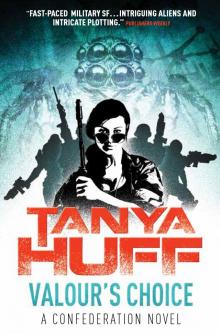 Valour's Choice
Valour's Choice Smoke and Shadows
Smoke and Shadows Sing the Four Quarters
Sing the Four Quarters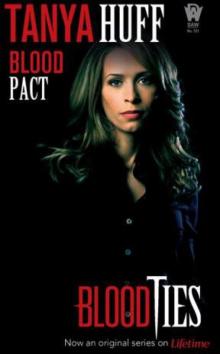 4 Blood Pact
4 Blood Pact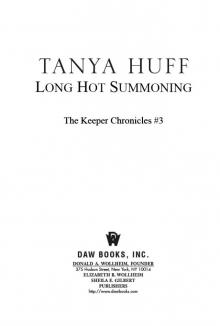 Long Hot Summoning
Long Hot Summoning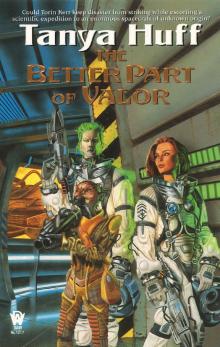 The Better Part of Valor
The Better Part of Valor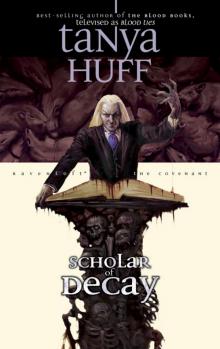 Scholar of Decay
Scholar of Decay He Said, Sidhe Said
He Said, Sidhe Said Wild Ways
Wild Ways Gate of Darkness, Circle of Light
Gate of Darkness, Circle of Light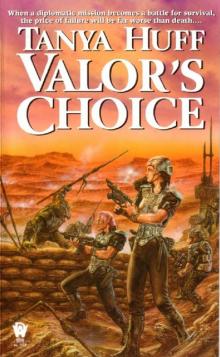 Valor's Choice
Valor's Choice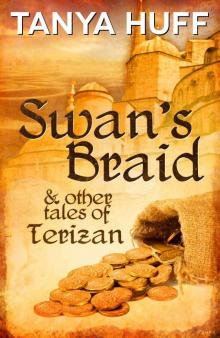 Swan's Braid and Other Tales of Terizan
Swan's Braid and Other Tales of Terizan